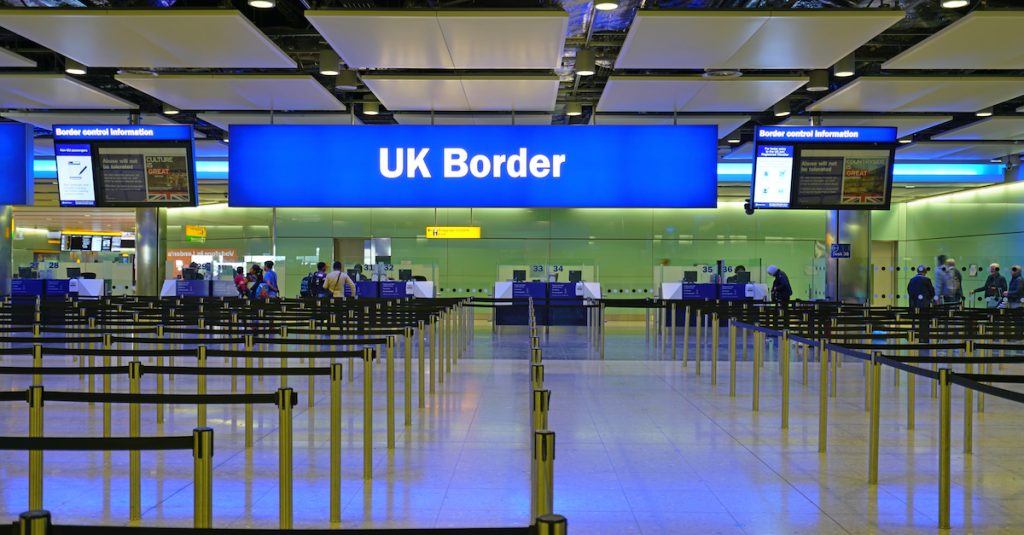A planned strike by Border Force officers at Heathrow has been suspended as talks between the union and the Home Office progress.
The potential strike risked coinciding with the busy Easter holiday return period, which could have resulted in severe travel disruptions.
Resolution in Talks
Border Force officers at Heathrow had initially planned a strike from April 11-14. The decision was suspended following continued discussions between the union and the Home Office. This suspension comes with the stipulation that talks must address the officers’ demands. If not, the Union warned that further action could ensue.
The proposed changes will impact up to 250 staff, potentially resulting in job losses. The union, therefore, demands revisions to roster plans to safeguard these jobs. In its statement, the Public and Commercial Services Union (PCS) highlighted the need for decisive action from the Home Office. The union emphasised that it seeks a fair resolution.
This move, according to PCS representatives, reflects a commitment to constructive dialogue. Fran Heathcote, PCS general secretary, reiterated the union’s willingness to negotiate a roster system that accommodates members, especially those with specific needs. The Home Office now faces the challenge of offering solutions that will satisfy both operational needs and employee concerns.
Union’s Standpoint
The PCS has played a pivotal role in voicing the concerns of Border Force officers. The union’s involvement underscores the broader implications of the proposed roster changes, which threaten staff job security and working conditions.
According to the PCS, without appropriate revisions, the planned changes could lead to considerable hardship for the officers affected. The union is prepared to resume strikes if meaningful negotiations fail to transpire.
PCS’s statement made clear the gravity of the situation. The union regards the suspension as a temporary measure, meant to encourage the Home Office to pursue a genuine engagement in resolving the underlying issues.
Impact on Operations
The proposed strike threatened to coincide with the end of the Easter school holidays, a peak travel period.
Had it proceeded, the strike could have caused significant disruption at one of the world’s busiest airports. The potential impact raised concerns among travel industry stakeholders regarding delays and operational challenges.
By averting the strike, at least temporarily, the PCS and Home Office prevented immediate disruptions. However, the threat of resumed strikes looms over Heathrow’s operations as unresolved grievances persist.
Home Office’s Response
In response to the union’s move, the Home Office continues to engage in discussions to resolve the roster issues. The department acknowledges the significance of these negotiations, given the potential ramifications on workforce morale and airport operations.
The Home Office is expected to present proposals that address the key grievances raised. Ensuring that these discussions lead to an equitable solution will be crucial for maintaining stability in airport operations.
Importance of Dialogue
Effective communication between the union and the Home Office is pivotal in these negotiations. Both parties understand the necessity of maintaining open channels for dialogue. The ongoing talks aim to find a middle ground where the needs of both employees and the organisation can be met.
The emphasis on dialogue reflects a broader trend within industrial relations. Constructive negotiations can lead to sustainable solutions, avoiding the adversarial outcomes often seen in labour disputes.
Looking Ahead
The suspension of the strike has provided a brief reprieve, but the situation remains precarious. Both parties must remain committed to resolving their differences to avoid further escalation.
It is imperative for the Home Office to propose a viable resolution that aligns with the employees’ expectations. The coming weeks will be critical in determining the future landscape of Heathrow’s Border Force operations.
Final Remarks
The current developments at Heathrow offer a glimpse into the complexities of labour relations in high-stakes environments.
The ongoing talks have highlighted the need for collaborative efforts in resolving workplace disputes. A successful resolution would not only benefit the involved parties but also ensure the continued smooth operation of critical national infrastructure.
The situation at Heathrow reflects the delicate balance between operational efficiency and employee welfare.
Successful resolution of the dispute will require continued commitment to open dialogue and mutual concessions by both parties.

